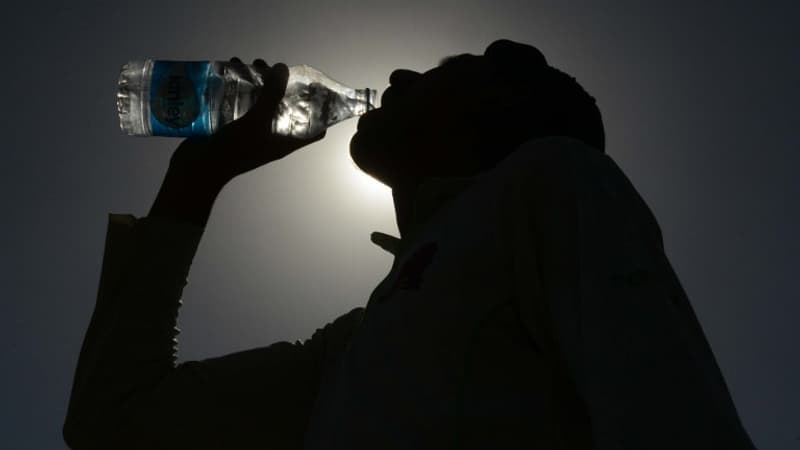With summer comes heat, which puts the human body to the test. Fight against this increase in temperature, which is not without its health hazard.
The main challenge for the body, when the mercury shoots up, is to maintain a temperature of around 37°C. And rightly so, “the vital organs of the body, which are the heart, the liver, the kidneys, the brain, cannot tolerate a temperature higher than 37°C”, explains Dr. Alain Ducardonnet, cardiologist and sports doctor. on BFMTV.com. The challenge is, therefore, to avoid the appearance of health problems.
To do this, the body has a system that allows it to cool down, but also to heat up when it is very cold. This is called thermoregulation.
sweating and evaporation
When temperatures are especially high, the body will try to evacuate this heat thanks to a well-known technique: perspiration. “The small vessels that are present in the body will expand to allow a fluid to pass through the skin to cool the blood. This is what creates perspiration,” explains Dr. Alain Ducardonnet.
Sweat, by evaporating, evacuates heat and thus allows the body to cool down. “But therefore it is essential that this perspiration can evaporate,” says Alain Ducardonnet. While this is generally not a problem in mainland France, where the climate is temperate, “evaporation can be more difficult in areas where there is high humidity.”
This is not without consequences, since poor heat evacuation causes an increase in body temperature, which can cause heat stroke.
Likewise, “when you don’t sweat, it means that the body is overwhelmed. It is the sign of a possible heat stroke”, adds Dr. Alain Ducardonnet. He keep in mind that heat stroke can be fatal as it causes damage to vital organs.
Drink water and cool off
So don’t take the heat lightly and don’t forget to help your body cope. “When you sweat, you lose a lot of water, so you have to drink to avoid dehydration,” recalls Alain Ducardonnet. He specifies that when we are thirsty, “it means that we already have a debt of 20% of our water capital.” Therefore, it is advisable to drink even if you are not thirsty and prefer water at a medium temperature. “If the water is too cold, the body thinks it is cold and stops sweating,” explains the doctor. “On the other hand, if the water is too hot, it increases perspiration and causes the risk of dehydration.”
Alcohol, coffee, tea and sugary drinks are strongly discouraged.
Alain Ducardonnet also recommends the use of a spray, “which will cool the skin”, or a fan and, in general, favor cool places. Another piece of advice: “Take a shower with cold water and do not dry yourself.”
Beware of children and the elderly
Symptoms such as tiredness, headaches, fever or sleep disorders can appear when the body struggles to perform its thermoregulation effectively. “This whole operation is a considerable work for the body,” says the sports doctor.
Children and the elderly are the most vulnerable to high temperatures since their metabolism adapts less easily. “Babies can become dehydrated very quickly,” explains Dr. Alain Ducardonnet. The elderly, they, “do not feel the heat and therefore do not produce enough perspiration to cool their bodies.” Therefore, we must be more vigilant.
Source: BFM TV


